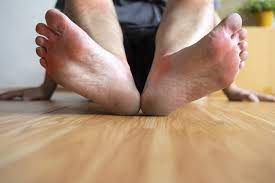Neuropathy, a condition characterized by nerve damage, can affect various parts of the body, including the feet and legs. Neuropathy in the feet and legs can lead to symptoms such as pain, tingling, numbness, and weakness. Effective treatment is essential for managing these symptoms and improving the quality of life for individuals with neuropathy.
Key Aspects of Neuropathy Treatment for Feet and Legs:
- Underlying Cause Management: Identifying and addressing the underlying cause of neuropathy is crucial. Neuropathy can result from various factors, including diabetes, autoimmune diseases, infections, and certain medications. Managing these conditions is an essential part of treatment.
- Pain Management: Pain relief is a primary focus of treatment for neuropathy in feet. Over-the-counter or prescription pain medications, such as nonsteroidal anti-inflammatory drugs (NSAIDs), can help alleviate discomfort.
- Neuropathic Medications: Certain medications, such as anticonvulsants and antidepressants, are effective in managing neuropathic pain by modifying nerve signals.
- Physical Therapy: Physical therapy and rehabilitation exercises can improve strength, balance, and coordination, reducing the risk of falls and injuries.
- Lifestyle Modifications: Making lifestyle changes, such as maintaining a healthy diet, exercising, and avoiding alcohol and tobacco, can have a positive impact on neuropathy symptoms.
- Nerve Stimulation: Some individuals find relief through therapies like transcutaneous electrical nerve stimulation (TENS), which involves applying electrical currents to the skin to relieve pain.
- Orthotics: Custom orthotic devices can provide support and reduce pressure on the feet, helping to alleviate neuropathy symptoms.
- Alternative Therapies: Complementary approaches such as acupuncture, massage, and herbal remedies may offer relief for some individuals with neuropathy.
- Medical Management: Managing any complications associated with neuropathy, such as foot ulcers, is essential for preventing further problems.
Preventing and Managing Neuropathy in the Feet and Legs:
Preventing neuropathy in legs often involves addressing the underlying causes, such as maintaining good blood sugar control in diabetes or avoiding medications that may contribute to nerve damage. Additionally, practicing good foot care and checking for any injuries or irritations can help prevent complications.
Regular check-ups and communication with a healthcare provider are essential for managing neuropathy.
Individuals experiencing neuropathy in the feet and legs should consult a healthcare professional to determine the most appropriate treatment plan. The approach to treatment may vary depending on the underlying cause and the specific symptoms experienced. Neuropathy management may involve a combination of medical interventions, lifestyle adjustments, and symptom relief strategies to improve overall well-being.



